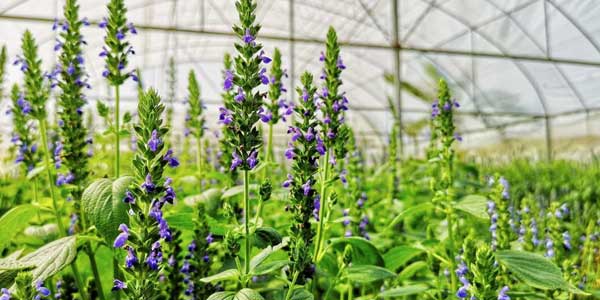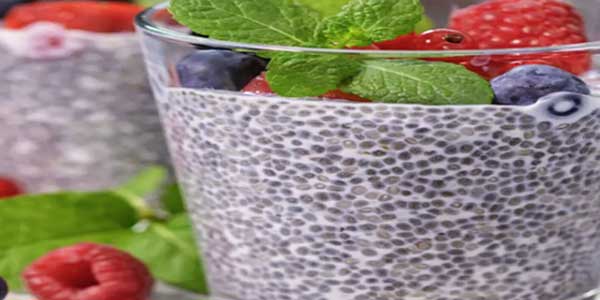Introduction
In recent years, chia seeds, also known as Sabza, have gained immense popularity due to their numerous health benefits and versatility in cooking. These tiny seeds pack a powerful nutritional punch and have been used for centuries in various cultures around the world. In this article, we will explore the uses, qualities, origin, sources, applications, health benefits, use in cooking, how to use, and potential side effects of chia seeds.
Origin and Sources of Chia Seeds (Sabza)
Chia seeds come from the plant Salvia hispanica, which is native to Mexico and Guatemala. The seeds have a long history of use in these regions, dating back to ancient civilizations such as the Aztecs and Mayans. The word “chia” actually means “strength” in the Mayan language, highlighting the importance and value attributed to these seeds.
Today, chia seeds are widely cultivated and consumed around the world. They are primarily grown in countries like Mexico, Bolivia, Argentina, and Australia. Chia seeds are readily available in grocery stores, health food stores, and online retailers, making them easily accessible for anyone interested in incorporating them into their diet.
Qualities of Chia Seeds (Sabza)
Chia seeds are small, oval-shaped seeds that come in various colors, including black, white, and gray. They have a mild, nutty flavor, which makes them versatile for use in a variety of dishes.
One of the remarkable qualities of chia seeds is their ability to absorb liquid and form a gel-like substance. When soaked in water or other liquids, chia seeds can absorb up to 10-12 times their weight in liquid. This unique characteristic makes them an excellent ingredient for creating puddings, jams, and thickening agents in recipes.

Nutritional Composition of Chia Seeds (Sabza)
Chia seeds are often referred to as a “superfood” due to their exceptional nutritional composition. They are rich in essential nutrients, including:
a. Omega-3 Fatty Acids: Chia seeds are an excellent plant-based source of omega-3 fatty acids, which are vital for heart health, brain function, and reducing inflammation in the body.
b. Fiber: These seeds are packed with dietary fiber, both soluble and insoluble. Fiber aids digestion, promotes a feeling of fullness, and helps maintain stable blood sugar levels.
c. Protein: Chia seeds contain a notable amount of protein, making them a valuable addition to a plant-based or vegetarian diet.
d. Antioxidants: Chia seeds are a good source of antioxidants, which help protect the body against free radicals and oxidative stress.
e. Vitamins and Minerals: Chia seeds contain essential vitamins and minerals such as calcium, magnesium, phosphorus, and manganese.
Culinary Uses of Chia Seeds (Sabza)
Chia seeds offer a wide range of culinary possibilities due to their unique properties. Here are some popular ways to incorporate chia seeds into your cooking:
a. Chia Puddings: Chia seeds can be soaked in milk (dairy or plant-based) or fruit juice to create a delicious and nutritious pudding. Add flavors like vanilla, cocoa powder, or fruits to enhance the taste.
b. Smoothies and Beverages: Adding a tablespoon of chia seeds to your favorite smoothie or beverage can provide an extra boost of nutrition and add a pleasant texture.
c. Baked Goods: Chia seeds can be used as an egg substitute in baking. To replace one egg, mix one tablespoon of chia seeds with three tablespoons of water and let it sit for a few minutes until it forms a gel-like consistency. This mixture can be used as a binding agent in recipes like muffins, cakes, and cookies.
d. Salads and Dressings: Sprinkle chia seeds on top of salads to add a crunchy texture and a nutritional boost. They can also be used in homemade dressings as a thickening agent.
e. Yogurts and Oatmeal: Stirring chia seeds into yogurt or oatmeal can enhance the taste and provide added fiber and nutrients.
f. Chia Water: Soaking chia seeds in water or your favorite beverage creates a refreshing and hydrating drink. Add some lemon or lime juice for a burst of flavor.

Health Benefits of Chia Seeds
Chia seeds offer a myriad of health benefits when incorporated into a balanced diet. Here are some of the key advantages:
a. Heart Health: The omega-3 fatty acids found in chia seeds have been linked to a reduced risk of heart disease by lowering cholesterol and triglyceride levels.
b. Weight Management: Due to their high fiber content, chia seeds can help promote feelings of fullness, reduce appetite, and aid in weight loss or weight maintenance.
c. Digestive Health: The soluble and insoluble fiber in chia seeds supports healthy digestion, prevents constipation, and maintains a healthy gut microbiome.
d. Blood Sugar Control: Chia seeds help regulate blood sugar levels due to their fiber content and slow digestion rate. This can be beneficial for individuals with diabetes or those looking to manage their blood sugar levels.
e. Bone Health: Chia seeds are a good source of calcium, phosphorus, and magnesium, which are essential for maintaining healthy bones and preventing osteoporosis.
f. Energy and Endurance: The combination of protein, healthy fats, and carbohydrates in chia seeds provides sustained energy and can be particularly beneficial for athletes or individuals with an active lifestyle.
g. Anti-Inflammatory Properties: The omega-3 fatty acids and antioxidants present in chia seeds help reduce inflammation in the body, which is associated with various chronic diseases.
How to Use Chia Seeds
To incorporate chia seeds into your diet, follow these simple steps:
a. Start with a small quantity: Begin with a teaspoon or tablespoon of chia seeds per day and gradually increase the amount over time.
b. Soaking: To unlock their nutritional benefits, soak chia seeds in liquid for at least 10-15 minutes. They will absorb the liquid and develop a gel-like consistency. This step is particularly important if you plan to consume the seeds directly.
c. Adding to Recipes: Chia seeds can be added to a wide range of recipes, such as smoothies, puddings, baked goods, salads, dressings, and yogurt. They can be sprinkled on top or mixed into the dish.
d. Storage: Store chia seeds in an airtight container in a cool, dry place, away from direct sunlight. Proper storage ensures their freshness and extends their shelf life.

Potential Side Effects and Precautions of Chia Seeds (Sabza)
While chia seeds are generally safe for consumption, there are a few precautions to keep in mind:
a. Allergic Reactions: Some individuals may be allergic to chia seeds. If you experience any adverse reactions such as itching, swelling, or difficulty breathing, discontinue use and seek medical attention.
b. Digestive Issues: Due to their high fiber content, consuming large amounts of chia seeds without sufficient liquid may cause digestive discomfort, such as bloating or constipation. Ensure you drink an adequate amount of water when consuming chia seeds.
c. Medication Interactions: Chia seeds may interact with certain medications, particularly blood thinners. If you are taking any medications, consult your healthcare provider before incorporating chia seeds into your diet.
d. Overconsumption: While chia seeds offer numerous health benefits, moderation is key. Consuming excessive amounts may lead to nutrient imbalances or unwanted side effects.
Conclusion
Chia seeds, also known as Sabza, are a versatile and nutrient-dense ingredient that can be easily incorporated into a balanced diet. They offer an array of health benefits, including heart health, weight management, digestive health, and blood sugar control. With their mild nutty flavor and gel-like consistency, chia seeds can be used in various recipes, such as puddings, smoothies, baked goods, salads, and dressings.
As with any food, it’s essential to consume chia seeds in moderation and be mindful of potential allergies, digestive issues, and medication interactions. By understanding their origin, qualities, sources, culinary uses, health benefits, and precautions, you can confidently embrace the nutritional power of chia seeds and elevate your cooking to a new level of health and taste. So go ahead, sprinkle some chia seeds into your next recipe and reap the benefits of this remarkable superfood!